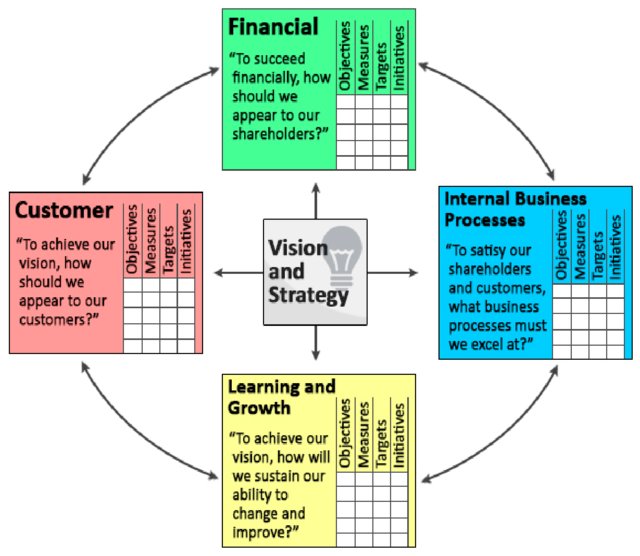3.2.2 Strategic Planning – Part 2
Course subject(s)
Module 3. Planning Smart Sustainable Cities Initiatives
Another strategic planning tool is called the Balanced Scorecard, which provides a framework for translating strategy into action and encourages the alignment of organizational resources. The Balanced Scorecard is divided into four perspectives:

Four perspectives of Balanced Score Card
Regarding a SSC application, the perspectives can be described as follows:
- The learning and Growth perspective identifies the city’s needs regarding employees’ skills and capabilities, allowing its successful strategy implementation. Indicates the training, skills, and technology needed to carry the organization forward.
- The internal Process perspective encourages the city to change and improve the way it delivers services, specifies specific strategy-related objectives, and encourages productive use of resources geared toward achieving the City’s mission and vision.
- The Financial Resources perspective identifies and enables resources needed to achieve the city’s strategic goals. Also, it is important to measure and identify deliverable services at a good price, support maintenance of sound financial position, identify funding mechanisms, and support accountable and responsible use of funds in citywide strategic scorecards.
- The customer (citizens) perspective in the “top line” position on the scorecard reflects that the city is a service delivery organization and typically should contain objectives representing key strategy-related services delivered to citizens.
The next step of the strategic planning process is preparing a plan. For this purpose S.M.A.R.T. model of goals can be a helpful tool. Well-defined tasks or goals should follow the rule of S.M.A.R.T. definition, an acronym for:
- Specific – meaning that target of a goal is a specific area for improvement should be well and precise defined;
- Measurable – meaning quantify or at least suggest an indicator of progress should be defined;
- Assignable – meaning person responsible for delivering should be explicitly mentioned;
- Realistic – meaning that goal or task should be realistic to be achieved, and finally,
- Time-related, specifying when the results of the goal can be archived.

Smart and Sustainable Cities: New Ways of Digitalization & Governance by TU Delft OpenCourseWare is licensed under a Creative Commons Attribution-NonCommercial-ShareAlike 4.0 International License.
Based on a work at https://online-learning.tudelft.nl/courses/smart-and-sustainable-cities-new-ways-of-digitalization-and-governance/ /



